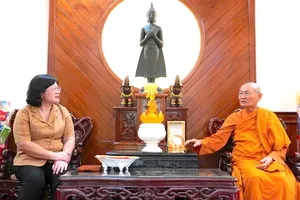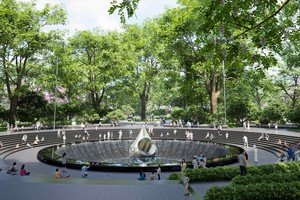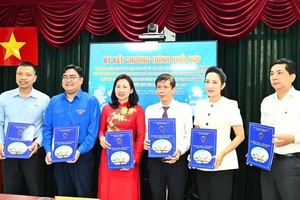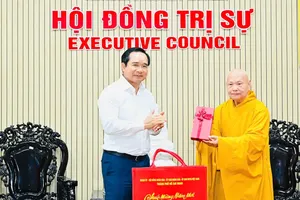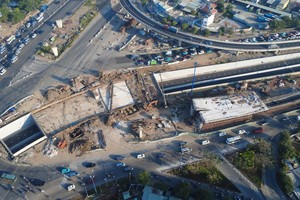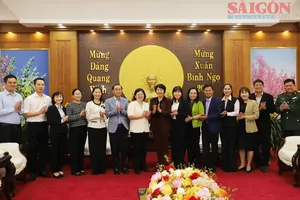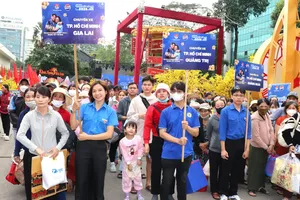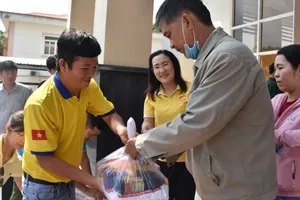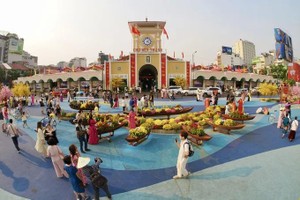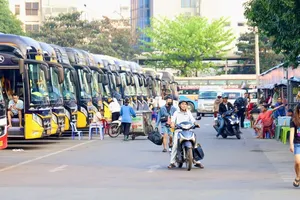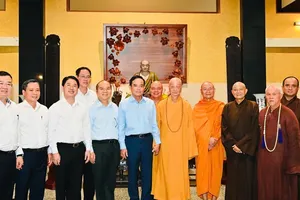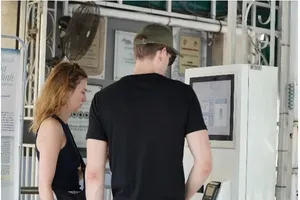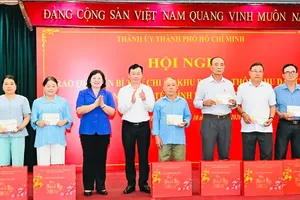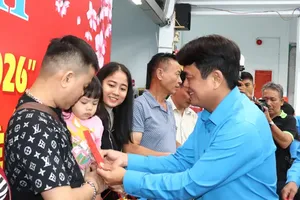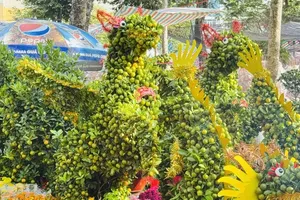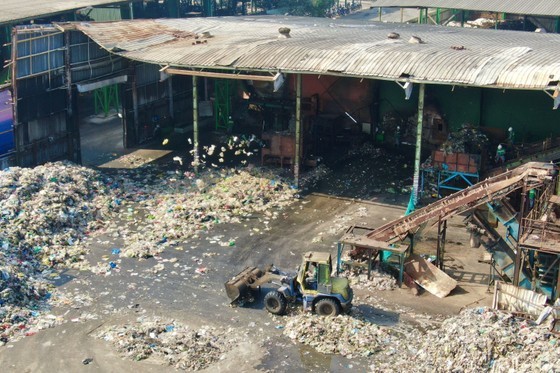 |
At a waste treatment plant in Cu Chi |
With more than 11,000 tons of waste generated every day, it has been posing many challenges for HCMC's receiving and treatment infrastructure, especially when most of the domestic waste is buried. Therefore, the Resolution 98 on piloting a number of specific mechanisms and policies for the development of Ho Chi Minh City (Resolution 98) is considered an opportunity for green enterprises to make a breakthrough and transform themselves to catch up with the trend of sustainable development steadily.
Businesses are empowered to take the initiative
Mr. Huynh Minh Nhut, Director of Ho Chi Minh City Urban Environment Company Limited, said that two regulations in the Resolution 98 directly affect the operation of environmental enterprises. Firstly, the government allows investors who are implementing domestic solid waste treatment projects to voluntarily convert all technologies to solid waste treatment with energy recovery to consider the addition of the volume of solid waste according to the city’s orders.
Secondly, the policies encourage and support the transformation of means of transport from using fossil fuels to using clean energy. Moreover, the resolution allows purchasing and exchanging old means of transport for new means of transport using clean energy and using public transport to reduce traffic jams.
In fact, the amount of waste generated in the southern metropolis is being determined into groups, including domestic waste of 9,000-11,000 tons generated per day, hazardous medical waste of 40-60 tons a day, construction waste of 1,500-1,700 tons a day and non-hazardous industrial waste of 1,500-2,000 tons a day.
Regarding treatment solutions for medical, hazardous, construction and industrial waste, the companies have collected and treated well, but the treatment of solid domestic waste is not satisfactory; thus, transformations are needed.
According to the Department of Natural Resources and Environment of Ho Chi Minh City, four companies, namely Vietnam Waste Treatment Company Limited (VWS), Vietstar Joint Stock Company, Tam Sinh Nghia Joint Stock Company and Ho Chi Minh City Urban Environment Company registered to collect and treat the waste of all kinds and apply treatment solutions including burying, recycling garbage into compost and recycling plastic waste.
Worriedly, more than 90 percent of the total amount of waste generated daily in the largest southern city is landfilled, while landfilling is the oldest and most outdated. Furthermore, the means of transport to collect solid waste also need to be upgraded. Currently, 22 public utility companies in the city are registered for collection and transportation of waste, but about 40 percent of the generated waste is collected daily, equivalent to 1,400 tons a day.
The remaining waste is collected by more than 2,000 private companies, cooperatives, and people's garbage collectors that use old homemade vehicles, which cause environmental pollution during the collection process, affecting the city's environmental quality.
Mechanisms should be upgraded
Mr. Phan Hong Thai, Chairman of the Southern Association of Urban Environment and Industrial Parks, said that the Resolution 98 on piloting a number of specific mechanisms and policies for the development of Ho Chi Minh City facilitated environment treatment activities.
Accordingly, companies with projects to convert waste treatment technology are ordered by the city to implement instead of having to time-consuming bid - which is complicated administrative procedures. This is considered a turning point in terms of mechanisms and advantages for investment activities of environmental enterprises in order to speed up the progress of deploying modern waste treatment plants and waste incineration plants to generate electricity.
Talking more about this issue, Mr. Huynh Minh Nhut said, from 2002 to now, Ho Chi Minh City Urban Environment Company has built a network to collect and treat recyclable waste from the program of sorting solid waste at source.
In particular, the company is proposing to the municipal People's Committee to approve the policy of implementing the project of a solid waste treatment plant with modern combustion technology with a capacity of 1,000 tons a day. Cu Chi District-located Phuoc Hiep Solid Waste Treatment Complex’s capacity can be raised to 3,000-5,000 tons a day.
According to the Department of Natural Resources and Environment, since 2019, the department has worked with many enterprises operating in the field of environment upon conversion of waste treatment technology. However, the companies have not been able to complete formalities due to many obstacles in the legal mechanism and procedures; thus, they have not put into operation the waste treatment plant to generate clean electricity.
In the past time, the city has been determined to support companies’ completion of the investment procedures in waste incineration plants to generate electricity, but the results have not yet been achieved. The Department of Natural Resources and Environment expected that Resolution 98 would help businesses transform and greenerize waste collection and treatment activities.

